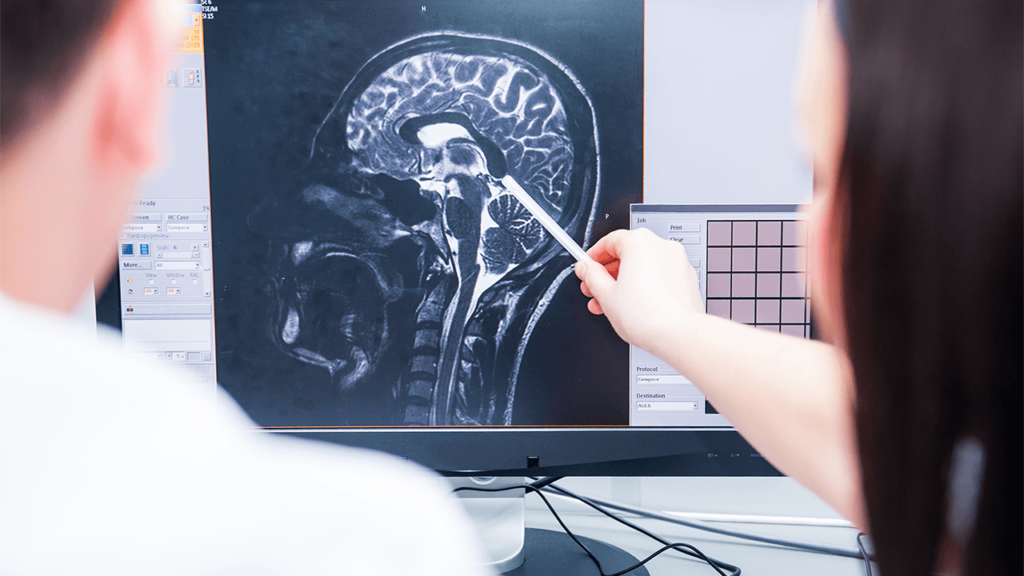After a car accident, many people and many medical providers for that matter are focused on the most emergent of injuries. These injuries include broken bones, cuts, lacerations, and other injuries which require immediate attention. However, what happens if an auto accident causes an injury that is difficult to immediately or visually observe? Car accidents and motorcycle accidents are one of the top producers of what are known as Traumatic Brain Injuries. Many people don’t realize that a concussion is classified as a Traumatic Brain Injury. We’ve seen the news coverage increase over recent years related to concussions and their impact on professional sports players but most notably in the National Football League. While the visibility and understanding of concussions in sports related activities is increasing, every day, individuals are exposed to potential Traumatic Brain Injury when they are involved in motor vehicle or motorcycle accidents.
Table of Contents
What is A Concussion?
As previously stated, a concussion is a type of Traumatic Brain Injury which affects your brain’s ability to function. The affects can be described to be on a spectrum which can range from temporary symptoms to permanent injury and/or death. While most concussions are usually caused by a blow to the head, a rapid acceleration or deceleration of your body, which happens during a typical automobile accident, is also a cause of concussions. Following an automobile accident, many people may refuse to be transported to the emergency room because they don’t have what they consider to be emergent injuries. However, concussions are injuries which need to be handled with great care and diagnosed by professionals. This is why it is always important to seek medical attention after any car accident, to ensure you receive assessment for Traumatic Brain Injury.
Typical Symptoms of a Concussion
Concussion symptoms can be severe and immediately observable or subtle and not present themselves until days after the event causing the concussion. Some symptoms of concussions can include:
- Headache or confusion and feeling as if in a fog;
- Temporary loss of consciousness;
- A gap in your memory surrounding the event which caused the concussion;
- Ringing in the ears;
- Nausea or vomiting;
- Delayed responses to questions;
- Fatigue.
As the days progress after your injury, you may notice that you have difficulty concentrating or remembering things. Additionally, you may be irritable and have some personality changes or are sensitive to light and noise. These are all post-TBI related symptoms of a concussion and should be immediately addressed by a medical professional.
Concussion Causes
Concussions can be caused by any number of activities. Concussions can be related to sporting events such as football; however, you need not be a football star to have the potential for incurring a concussion. The most notable of these activities is operating a car or motorcycle. When you are exposed to a sudden acceleration or deceleration or violent blow to the head, these types of forces which are common in car and motorcycle accidents can cause Traumatic Brain Injuries. The concussion you may receive from a car accident will impact your brain function and it is important to be cognizant of the symptomology so you can better identify the need for medical attention. Traumatic Brain Injuries can be fatal. This potential for a fatal Traumatic Brain Injury is why anyone who has potentially experienced a brain injury needs to be monitored after an accident.
A recent article published by the Journal of the American Medical Association looked at the follow-up care for patients with mild Traumatic Brain Injuries after a hospital discharge. The study found that there were identifiable gaps in follow-up care for patients with a mild Traumatic Brain Injury after hospital discharge. These gaps in treatments were observed even with individuals who showed a positive finding on a CT scan and who continued to experience post-concussive symptoms. Interestingly, the follow-up care, or, lack thereof, was not related to the patient income or insurance status. Among the group of patients studied, those with three or more moderate to severe post-concussive symptoms, only 52% reported seeing a medical provider three months following the concussion.
These striking results illustrate the need for more detailed patient education on concussion symptoms and the availability of follow-up care for motor vehicle related concussions.
The Reality Surrounding Concussions and Motor Vehicle Accidents
We all know that concussions can and are caused by motor vehicle accidents however; an insurance companies’ willingness to pay for treating concussions varies. It is imperative that the medical provider diagnoses and prescribes treatment modalities addressing the various levels of concussion which can be caused by a motor vehicle accident. Even in a typical rear end collision, a concussion can greatly impact your health and personal life which needs to be documented and presented to your insurance company. Specifically identifying the symptomology and treatment modalities will help in achieving greater recovery related to your Traumatic Brain Injury.
Severe Traumatic Brain Injuries are more straightforward; however, the mild to moderate Traumatic Brain Injuries are the ones which need to be advocated for when an insurance company is looking to pay as little as possible on a claim. St. Petersburg Car Accident attorneys McQuaid and Douglas always look to ensure their clients receive full recovery for their injuries. Putting a focus on not only physical injuries but Traumatic Brain Injuries is one key to success in pursuing claims arising out of a motor vehicle accident. Call Car Accident attorneys McQuaid and Douglas now for a free consultation to explore the full value of your claim.














